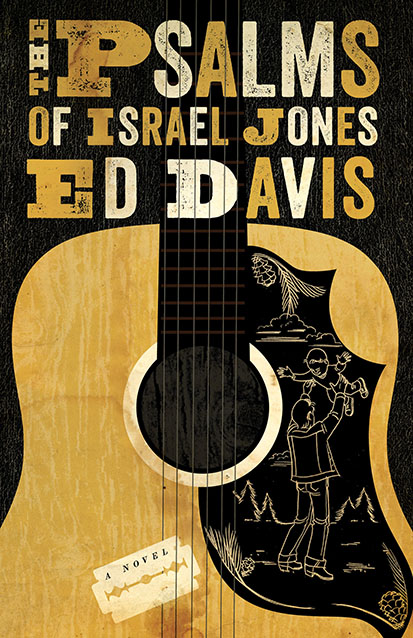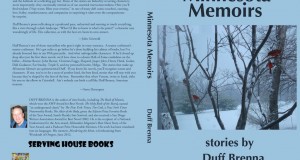
I haven’t read a novel with such beautiful and yet such unpretentious prose since college while studying contemporary literary fiction at Pitt. The writing moves like poetry, which is appropriate given the book revolves around a world of music: A middle-aged pastor who is in contention with his church over a possible scandal goes on the road with his aging rock-star father. Their relationship has never been a good one, and suddenly his musical performances are attracting a crowd of youths who cut themselves and bleed for their musical idol.
And “idol” is not a far-fetched title here, as the book handles the subject of Christianity, faith, relationship with both earthly and Heavenly Father and redemption. The novel is rich with theological metaphors, yet the subject matter appeals to everyday readers who simply want good prose, vivid characters and a story worthy of calling it “literary.”
The most striking tension unfolding in the story isn’t even between the aging rocker, Israel, and his bleeding fans — though the tension does mount as you sink deeper into the book. The highest echelon of character struggle is invisible and yet as thick as music between Thom, the pastor and his father, while Thom is also trying to recuperate from a broken marriage and accusations from his own church deacons over a woman in their congregation.
Yet stunning is that though Israel is known globally for his lyrics and musical glory, he barely speaks — especially to his own son — except for rare, almost mystical occasions. Thom truly is battling in trying to restore his relationship with his Fathers, both the one in the flesh and the spiritual One who has seemed so distant and foreign to him since the death of his newborn daughter and broken marriage. Making things even more difficult is Murphy, the tour manager whose every action revolves around protecting the aging rocker, whose health is falling apart after at least two strokes over the years.
“Murphy was the filter, fence, door, and wall against distractions, enabling him to do all he’d ever wanted to do — or at least all he’d ever done — which was write, record, and sing songs.”
And then there’s this wondrous line I wish so badly I could steal:
“I reached out and squeezed his bicep, my pastorly way of solacing men, and … recognized it as a mistake — you don’t touch men like Murphy unless you want to feel their fangs …”
(In fact, there are so many lines in this novel that are so striking, so exact, so poignant, that I wouldn’t be surprised if years and years from now people would repeat them in everyday conversations without even realizing where they had originated).
The characters felt so real and familiar that it genuinely felt like I had just shook their hands, met them in person, and they had left the room only a moment ago. Which is perfect for creating great, relational conflict.
In these interpersonal battles, the novel tackles and embraces the reader’s own familiar challenge of getting to God when it seems in this world there are so many buffers that block us from communing directly with Him. Even though so many of those buffers are man-fabricated and utterly destructive, we seem to run up against them in most aspects of our lives, both in and out of worship.
As Thom’s journey ensues, he does eventually reach the inner circle with his father, but even when we are close range, Thom is unsure which emotion is the most powerful: hate, love, fear or anger at his own father, especially for basically abandoning Thom and his mother in favor for what Israel loves most: Music.
Music and worship, in fact, are continually brought to the table metaphorically, venturing even in the speculation of music’s spiritual powers, and yet dashing those very assumptions at the same time:
“I hate that! If sex and drugs and rock and roll are the same as connecting to God, then religion has about relevance as … table manners,” said Thom in one conversation with Murphy.
Clearly, there is a distinction between even the most elevated state of physical euphoria and what God actually provides directly to his own covenant children.
Yet the novel doesn’t deliver easy answers. It isn’t afraid to dip in the ugly world of “Snakes and sex, rock and gospel, guilt and grace.” Davis, the author, weaves through all these conflicts without ever becoming comically crass about any of them. Even the opening scene of snake-handling in church is handled with sober-minded reverence, the whole time being very self-aware: not just of the novel itself as the author, but aware of his readers, in fact calling all readers from all backgrounds to take on the musical journey with Thom.
Also, one of my favorite scenes is between Thom and one of the “bleeder” fans, who — almost comically — begin debating Israel’s song lyrics as though they were inspired scripture, much in the same way two theology students might argue over a Pauline letter.
For being such a short novel (218 pages), this book is rich with little theological enigmas and thoughtful metaphors, not even counting all the musical references I likely missed (I know almost nothing about the rock music world). In fact, it’s darn impressive how much Davis is able to pack into such a tightly-edited story. The story weaves through flash-back memories with such immediacy and such great detail, it would have taken me pages trying to achieve the same effect, and still come short.
When it comes down to a theological stance, the novel doesn’t boast any hard lines. In some ways, I wish it had. The one stance it does take seems a tad on the universalism side, but I think that’s more because the novel tries to promote compassion and grace in light of the many, many fundamentalist congregations we see in our own lives, even today. As a “hard-line” Calvinist, I probably disagree with some of the novel’s implied resolutions.
Another concern I had with the novel is that it remained ambivalent over (and almost supportive of) Thomas’ relations with the woman from his church congregation. Though his interaction with her wasn’t sexual, I would dare to say that his intentions were selfish (certainly motivated by self interest) and therefore sinful. There seemed no repentance or remorse here, and Thom basically justified himself and his actions because of the woman’s hard-line, un-compassionate husband. Not to get too hung up on the topic of church discipline, but the proper answer would have been marriage counseling, not a pastor-to-woman personal counseling that flirted more with adultery than spiritual healing. Fortunately, Thom does find redemption and his purpose is restored in the final chapters of the book.
Overall, this novel was not only lyrically impressive, but also filled with some of the most enjoyable prose and most believable characters I’ve read in a while. I would definitely read more of Davis’ fiction.
 Michel Sauret – Award-Winning Army Journalist | Independent Author Award-Winning Army Journalist, Independent Author
Michel Sauret – Award-Winning Army Journalist | Independent Author Award-Winning Army Journalist, Independent Author






